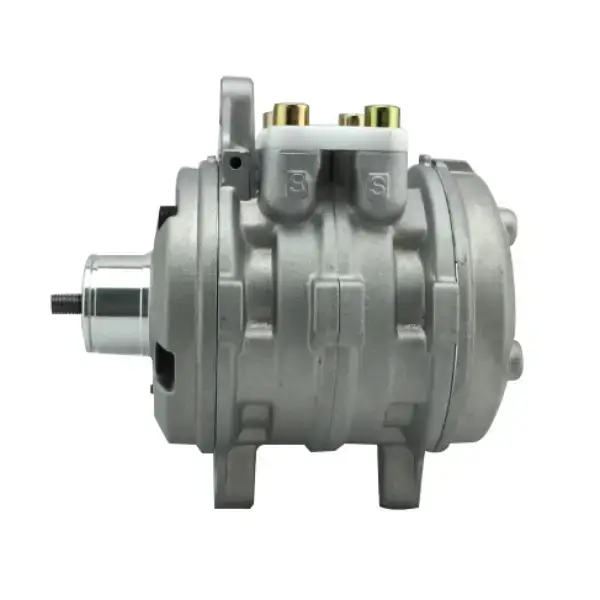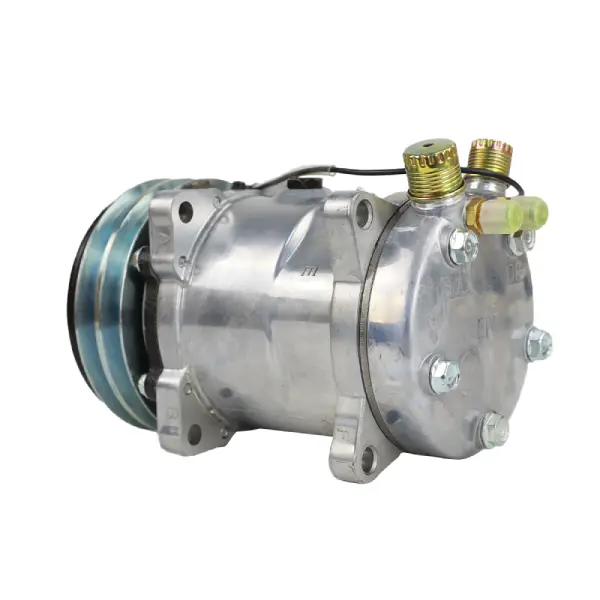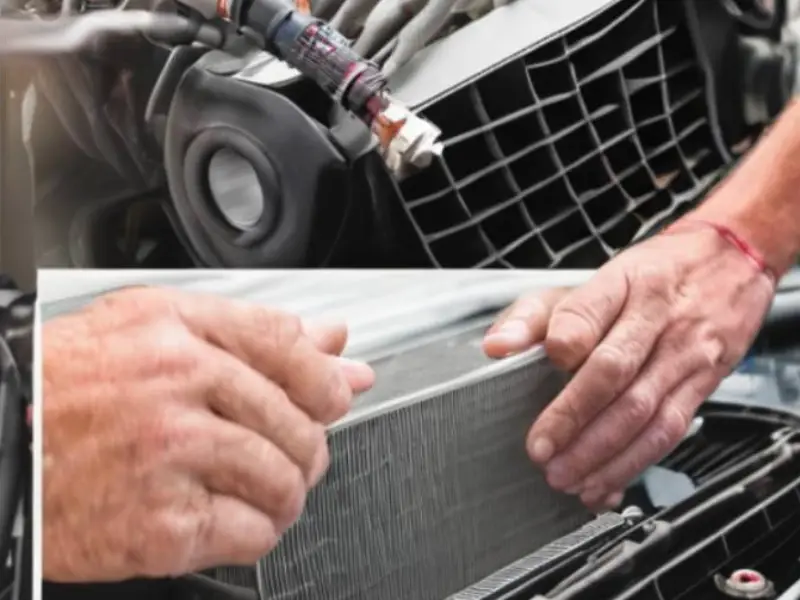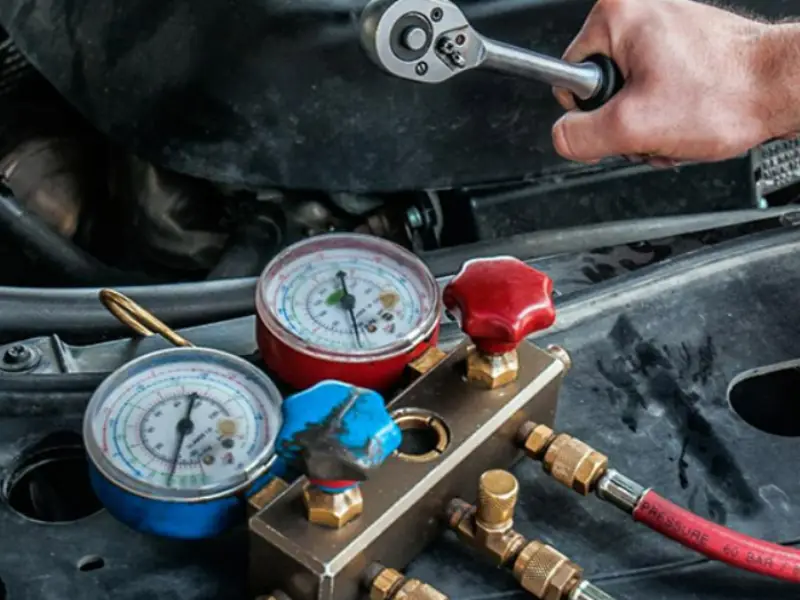The Importance of the A/C Blower Motor
The AC fan motor plays a crucial role in maintaining a comfortable environment inside the vehicle by:
Enhancing Air Conditioning Efficiency: The fan accelerates airflow over the condenser, helping to dissipate heat quickly and effectively. This enhances the cooling effect, enabling the cabin to reach a comfortable temperature more quickly and reducing the wait time for cool air.
Assisting Engine Cooling: The fan pushes air through the radiator to carry away engine heat, preventing overheating. After the vehicle is turned off, the fan may continue to operate briefly to help cool down the engine, avoiding potential damage from high temperatures.
Improving Driving Comfort: By maintaining a comfortable interior temperature and promoting air circulation, the fan minimizes dampness and odors, keeping the air fresh and enhancing the overall driving experience.
Extending System Lifespan: Efficient heat dissipation prevents overheating, reducing the risk of malfunctions and extending the service life of both the engine and AC system.
Common Symptoms of a Faulty AC Fan Motor
If your A/C blower motor is failing, you may notice the following signs:
No Air or Weak Air: Inadequate Airflow from vents can result from a blown fuse, motor failure, or disconnected wiring, leaving you without conditioned air and affecting the comfort of the driving.
Blower Operating at a Single Speed: Damage to the blower resistor or control module may cause the fan to run at a constant speed, leading to system inefficiencies that require immediate resistor replacement.
Abnormal Noises from the HVAC Unit: Unusual sounds like rattling or scraping may indicate foreign objects in the fan housing or worn-out bearings, necessitating a thorough inspection of the fan wheel and motor assembly.
Intermittent Blower Operation: Loose wire harnesses, poor electrical contacts, or an impending motor failure could cause inconsistent air delivery, impacting comfort and safety.
Non-Refrigerated Air Despite Blowing Fan: This issue is unrelated to the blower motor and may stem from low refrigerant levels, compressor failure, or a blocked evaporator.
Presence of Burning Smell or Smoke: A burning smell or smoke indicates overheating wires or motor overload, requiring immediate disconnection of the HVAC system and inspection to prevent fire hazards.
Causes of A/C Blower Motor Malfunction
Several issues can lead to a malfunctioning AC fan motor:
Blown Fuse: A blown fuse is a common culprit, occurring when the AC system draws excessive current due to a motor overload or short circuit. This safety mechanism cuts off power to prevent damage.
Bad Wiring: Wiring issues can disrupt electrical flow to the fan motor. Damaged, frayed, or corroded wires may result from wear, heat exposure, or rodent activity.
Malfunctioning Speed Control Module: The speed control module, often a resistor, regulates fan speed by adjusting electrical resistance. Over time, it can overheat and fail, especially in dusty or poorly ventilated environments.
Worn-Out Motor: As the fan motor ages, its bearings may wear out, brushes degrade, or windings short-circuit due to heat and vibration.
Electrical Issues with Blower Motor Relay: The blower motor relay controls power to the fan motor and can fail due to overheating or internal wear.
Steps to Address a Faulty AC Fan Motor
When dealing with a faulty AC fan motor, temporary fixes can offer quick relief. Resetting a blown fuse by replacing it in the fuse box may restore power, but repeated blowing signals a deeper problem. Reconnecting loose or corroded wires can also temporarily resolve intermittent operation caused by poor electrical contact.
For a permanent solution, if the motor is faulty, replace it. First, disconnect the battery, then remove obstructing components to access the motor. Swap it with a new one matching original specs, ensuring tight, grounded connections.
If the issue is electrical, repair the system. Replace damaged wiring, clean corroded terminals, or install a new speed control module or relay. Use a multimeter to check for continuity and proper voltage. After repairs, reassemble, reconnect the battery, and test the AC. Regular maintenance, like cleaning the motor and replacing filters, can prevent future failures.
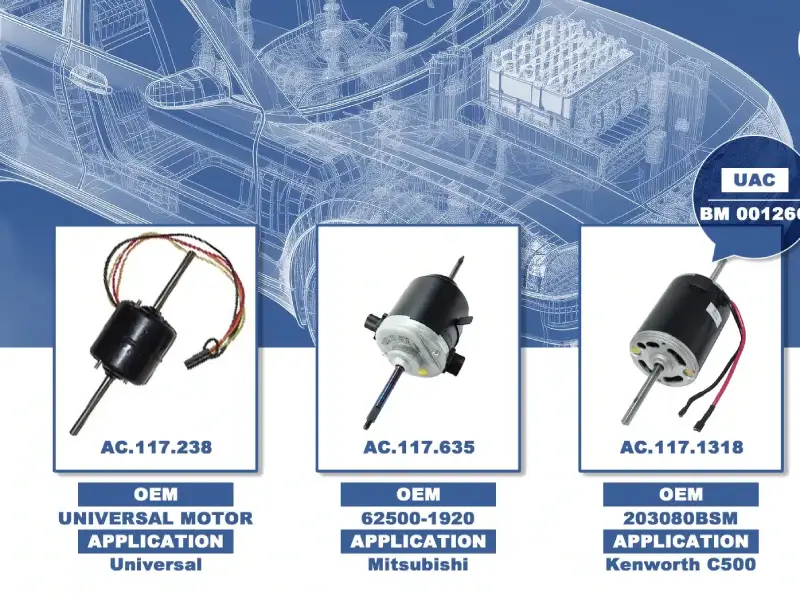
Preventive Maintenance Tips
To prevent A/C blower motor issues, consider the following tips:
Regular Check-Ups
Conduct regular inspections, including visual inspection of the blower motor and its surrounding components for visible wear, damage, or corrosion; operational check by turning on the A/C system to observe the motor’s performance at various speeds for any irregularities in sound or operation; and connection integrity check to ensure all electrical connections to the motor are secure and corrosion – free.
Cleaning
Perform cleaning tasks such as replacing the cabin air filter as recommended by the vehicle manufacturer, periodically cleaning the area around the blower motor and air ducts to remove accumulated dust or debris, and maintaining the cleanliness of the condenser and evaporator to improve overall air conditioning efficiency.
Monitoring for Early Warning Signs
Pay attention to airflow changes from the vents, listen for unusual sounds when the air conditioning operates, and be aware of any changes in the A/C system’s performance, like longer cooling times or poor defrost capabilities.
Professional Diagnostics
Schedule regular professional maintenance for the vehicle’s AC system, especially when performance changes are noticed, and utilize diagnostic tools to check for error codes related to the blower motor or air conditioner system.
Addressing Electrical Issues
Regularly check the fuses and relays associated with the blower motor for proper functioning and replace them if necessary, and inspect the wiring for signs of damage, wear, or loose connections.
Conclusion
In conclusion, the A/C blower motor is a vital part of the vehicle’s AC system, playing a significant role in ensuring comfort and safety while driving. By understanding its importance, recognizing the symptoms of a faulty motor, knowing the causes of malfunction, taking appropriate steps to address issues, and following preventive maintenance tips, you can keep the A/C blower motor in good working condition. This will not only enhance the driving experience but also extend the lifespan of the vehicle’s AC system, ensuring a cool and comfortable environment inside the car.
Blower Motor Availability
Anchor Group supplies a wide range of AC blower motors compatible with major vehicle brands, including:
Voltage options: 12V / 24V
Applications: Passenger cars, trucks, buses, off-road vehicles
OE Cross References: Available upon request
Custom packaging & branding available for bulk buyers


